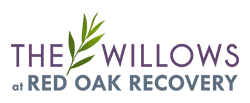Rebuilding Trust After Rehab: A Path Forward for Women in Recovery
Rebuilding trust after rehab is a difficult yet rewarding part of recovery. Addiction can damage relationships and leave behind pain, distance, and broken promises, but trust can be rebuilt with time, patience, and support. Because healthy, intentional relationships are proven to be a critical aspect of recovery, drug and alcohol addiction treatment requires a holistic approach founded on treating the mind, body, and soul.
If you are a woman in North Carolina looking for healing through substance abuse treatment, The Willows at Red Oak Recovery® offers caring, specialized programs custom-tailored to your unique needs. Here, trust in recovery is more than a goal; it’s part of the journey.
Why Trust Matters in Recovery
Trust helps build healthy relationships and gives you the confidence to move forward.
It connects you with others and allows you to believe in yourself. After addiction, rebuilding trust means repairing broken relationships and restoring self-worth.
For women in drug and alcohol addiction recovery, learning to trust again takes strength. But each small step, done with honesty and care, makes a big difference.
If you’re ready to begin, our knowledgeable and supportive admissions consultants at The Willows at Red Oak Recovery® can help guide you through your next steps.
Common Challenges When Rebuilding Trust
Rebuilding trust takes time, and the process is often filled with emotion. Friends and family may feel uncertain about your changes, even if your recovery is going well. They may need to see consistent actions before they fully believe in your progress.
You might also struggle with self-doubt. This is common, especially in early recovery. It helps to set small goals and celebrate progress along the way.
Sometimes people expect fast forgiveness, but trust usually grows slowly. It requires patience, understanding, and consistent effort.
At The Willows, we help women overcome these challenges with kindness and expert care.
How to Rebuild Trust After Addiction
Honesty is one of the most important steps. When you are truthful about your journey—both the good and the hard parts—you show others you’re serious about change. You also learn to trust yourself again.
Being consistent helps people see that your actions match your words. This means showing up for therapy, sticking to routines, and following through on promises and commitments.
Taking responsibility for past actions is also key. A sincere apology can start the healing process. It shows you understand how your choices affected others and that you’re working to improve your life.
Why Communication and Boundaries Matter
Good communication helps rebuild broken relationships. Listening closely, speaking kindly, and sharing honest feelings can help you build trust. Being open can help your loved ones feel safe with you again.
Setting boundaries is also important. Boundaries make space for healing and help you protect your recovery. For example, you might need time alone for rest or personal care.
Family therapy at The Willows at Red Oak Recovery® helps improve communication and boundaries by offering a safe space for families to talk through their struggles and begin to reconnect.
How Therapy and Support Help Trust Grow
You don’t have to rebuild trust alone. Support from professionals and peers makes a big difference. This is why we proudly offer a broad range of therapy options to support your unique recovery journey.
In one-on-one therapy, you can work through tough emotions, learn new coping skills, and rebuild confidence. It’s a space to grow without judgment.
Family therapy brings loved ones together to talk openly and learn to support each other again. It helps repair broken bonds and encourages honest conversations.
Support groups, like 12-step programs, connect you with others who understand what you’re going through. These groups offer friendship, guidance, and accountability.
Your admissions team at The Willows can help you choose the right combination of therapies and support for your journey.
How to Keep Trust Strong Over Time
Trust doesn’t stay strong by itself. It takes continued effort and attention.
Checking in with yourself regularly can help you stay focused and aware of how you feel. It also allows you to spot stress and take actions to address it before it builds up.
Staying involved in care—like therapy or a support group—gives you ongoing encouragement. It reminds you that recovery is a journey, not a quick fix.
Avoid situations that may trigger relapse. Knowing your limits and keeping healthy boundaries protects your progress and peace of mind.
Celebrate small wins, too. Keeping promises, showing up, and making honest choices all strengthen your trust in yourself and your relationships.
Why Women in North Carolina Choose The Willows
The Willows at Red Oak Recovery® is a trusted substance abuse treatment center in North Carolina. We help women rebuild trust, heal relationships, and find lasting recovery.
Our programs include:
- Experiential therapy, such as yoga, art, and outdoor activities
- Family therapy to support healing and improve communication
- Extended care beyond the initial 90 days, including aftercare, transitional living, and connection with a supportive network of like-minded peers and alumni.
We understand that every woman’s story is different. That’s why we offer personalized care that meets you where you are.
Take the First Step Toward Rebuilding Trust
Rebuilding trust after rehab may feel difficult, but you don’t have to face it alone. Every honest moment and day of sobriety will bring you closer to reconnecting with those you love, and above all, yourself.
At The Willows at Red Oak Recovery®, we help women rebuild their lives with dignity, strength, and support. Our expert, trauma-informed addiction recovery team is here to guide you with care and compassion.
If you’re ready to begin or want to learn more about how we can help, call us today at [Direct] or contact us online. Our admissions team is available 24/7 to offer the support, guidance, and answers you need.
Your journey to trust, healing, and lasting recovery can start now.


